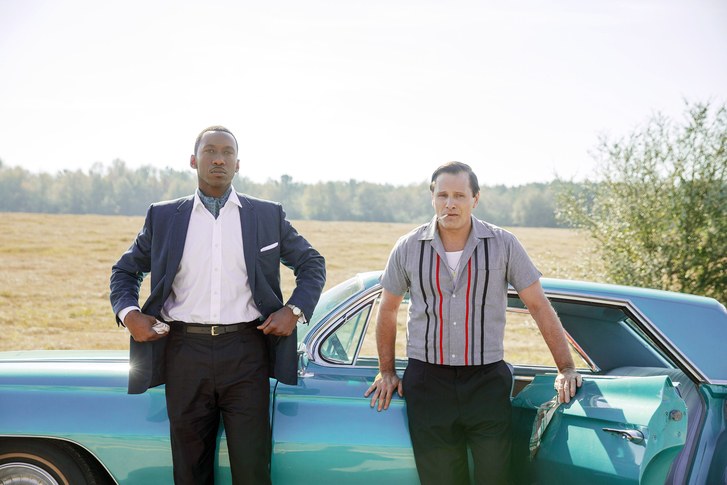By Lynn Lee

I heaved a heavy sigh the moment Green Book won best picture. But not for the reasons many of the rest of you probably did.
No, my heart sank because, dear readers, I like Green Book. Liked it when I saw it, still like it now after all the controversies that failed to derail its path to Oscar. Liked it enough to cringe at the thought of how exponentially the animus it’s already generated would grow following its victory, and how quickly it would be added to lists of the Academy’s Worst Decisions Ever...
Do I think it deserved best picture?
No; I was rooting for Roma, and BlacKkKlansman would have been my second choice. And yes, the revelations about Green Book are troubling, especially the apparent lack of consultation of Don Shirley’s family. While just how close he and Tony “Lip” Vallelonga actually were hasn’t been conclusively settled, there’s at least some indication that Dr. Shirley was nowhere near as isolated from his family and the African American community as the movie suggests. I have wondered if the writers were trying to avoid “magical negro” territory by amplifying a need or weakness for his character (loneliness, the feeling of feeling divided between two worlds) that Tony could fulfill, to balance out how much Don gives and teaches Tony.

This gets to the heart of Green Book’s appeal, which is also what irks its critics. The movie presents an idealized – some would say facile or even false – narrative of equality, one in which racism can be overcome and cultural differences bridged by individuals getting to know and empathize with one another. It’s moral comfort food that arguably shortchanges the sheer magnitude and history of inequality between blacks and whites and absolves the white man of his racism once he sees the error of his ways – notwithstanding the messier, darker reality that those sins can’t be so easily excised.
But that view, to my mind, puts too much weight on a film that feels essentially modest in its scope. Unlike Crash, with which it will now forever be dogged with comparisons, Green Book doesn’t feel like a prescription for curing racism (even if Peter Farrelly seems to think it is). For me, it works as a warm, funny, predictable but still poignant and unexpectedly charming odd-couple road trip movie that’s elevated by the natural chemistry between Viggo Mortensen and Mahershala Ali and the incredible real-life accomplishments of Ali’s character. Was this the best movie that could have been made about Don Shirley? Almost certainly not. Was it the best movie about his friendship with his driver that could have been conceived by the driver’s son? I think so, and the fact that it turned out to be as enjoyable and, yes, even-handed as it did was a pleasant surprise.
 Spike (BlacKkKlansman) and Mahershala (Green Book) with their Oscars
Spike (BlacKkKlansman) and Mahershala (Green Book) with their Oscars
So no, Green Book is no Crash redux. Driving Miss Daisy is a more apt analog, and an unfortunate one, especially in a year that would (again) have been more deservingly Spike Lee’s. Once again, the Academy’s preference was for the feel-good movie about people connecting against all odds, rather than the movie(s) that showed just how damn stacked those odds are. In my heart, I can't hate their choice. But I do blame them for saddling Green Book with a legacy that it’s not quite robust enough to bear.